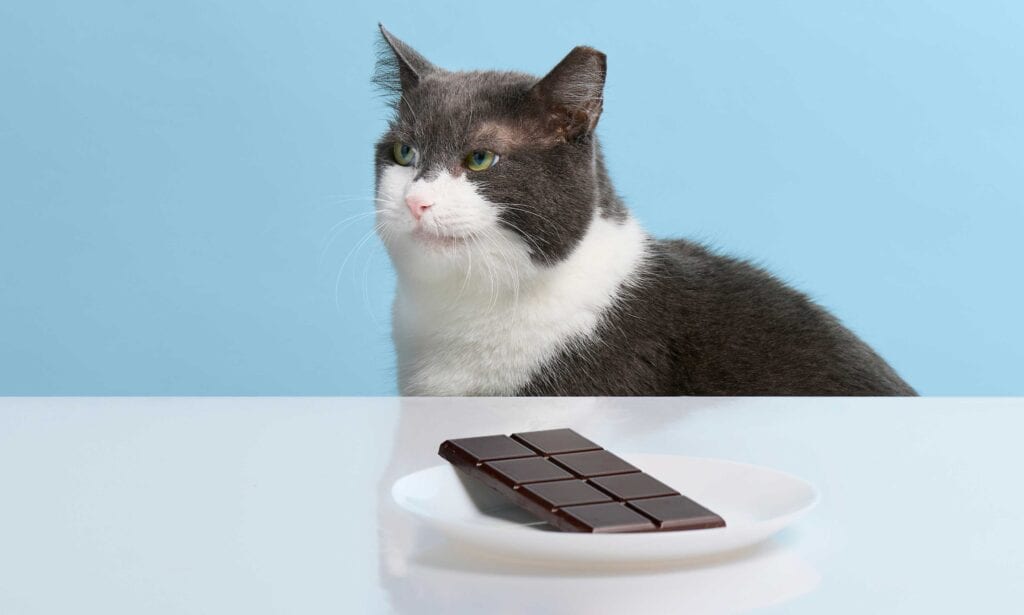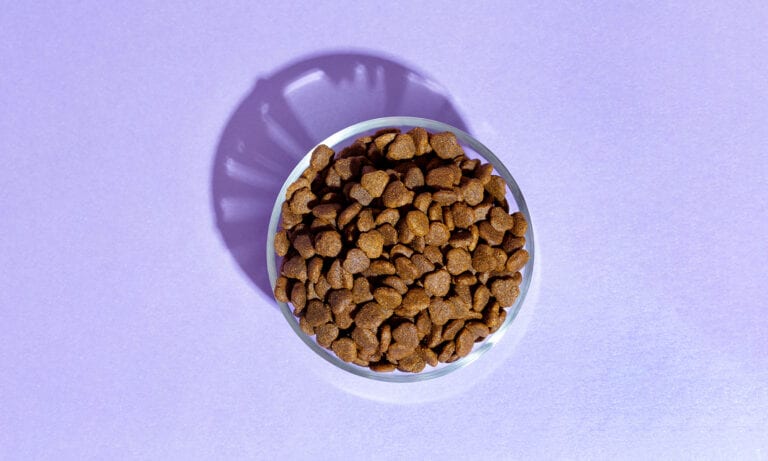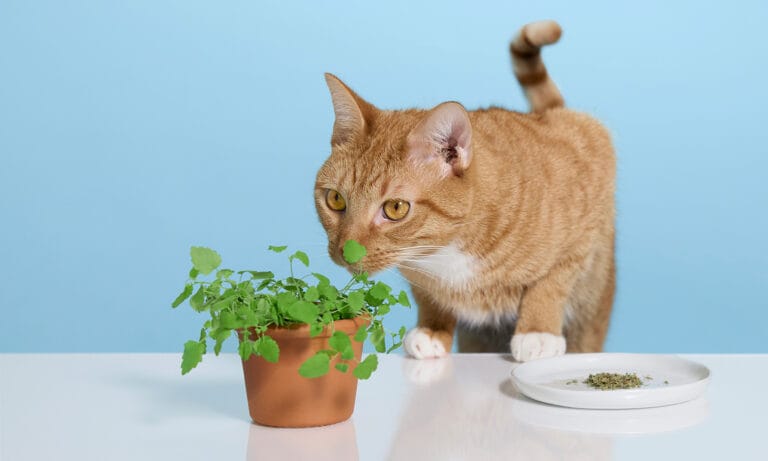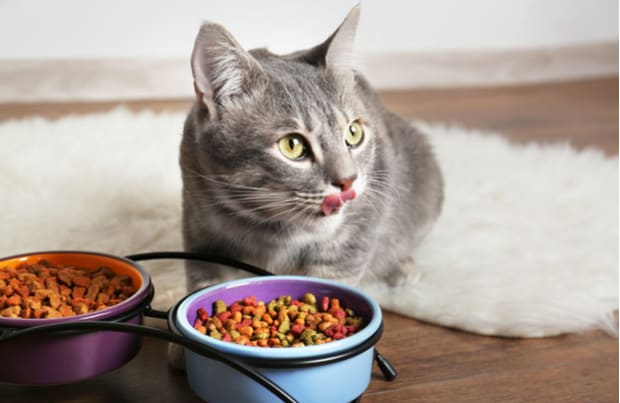You love cats. And you love chocolate. We get it. We do, too. But do cats love chocolate? And can cats eat chocolate safely? The answer, as our vet expert put it, is: “Nooooooooooo!” with exactly 11 “Os.”
Cats may sometimes seem curious about chocolate, but typically, they don’t have a taste for the sweet treat. And that’s good because chocolate isn’t just dangerous for them—it’s life-threatening. Yes, in severe cases, chocolate poisoning can actually be fatal.
Ahead, we break down everything pet parents need to know about chocolate and cats: what makes chocolate toxic for them, what types of chocolate are toxic, and what to do if your cat gets into this beloved human treat.
Can Cats Eat Chocolate?
Click to jump to each section.
Why Is Chocolate Unsafe for Cats?
All brown chocolates, including semi-sweet milk chocolate, baking chocolate, and dark chocolate, contain caffeine and theobromine, which cats can’t metabolize safely, explains Dr. Wooten.
Caffeine and theobromine are alkaloids, or—if you want to get nerdy—naturally occurring chemical compounds that act as stimulants. While caffeine is harmful to all animals, it’s theobromine that carries highly toxic properties for them, and even the smallest amounts should be avoided at all costs.
How Much and What Kind of Chocolate Is Harmful to Cats?
The truth is, cats shouldn’t eat any chocolate of any kind.
- White chocolate: While it may not be as toxic for cats as brown chocolate, white chocolate still contains milk and sugar, both of which can cause stomach upset and irritation.
- Brown chocolate: Containing milk and sugar as well as caffeine and theobromine, brown chocolate is a very toxic compound for cats.
How toxic chocolate is really depends on your cat’s size and individual sensitives. Generally speaking, you should contact a vet if your cat eats any kind or amount of chocolate.
However, here are approximations of toxicity based on size and type of chocolate:
0.2 oz. of Baker’s chocolate or dry cocoa powder
0.4 of Baker’s chocolate
0.6 of Baker’s chocolate
0.5 oz. of dark or semi-sweet chocolate
0.2 oz. of dry cocoa powder
0.3 oz. dry cocoa powder
1.14 oz. of milk chocolate
1 oz. of dark chocolate
1.6 oz. of dark chocolate
0.9 oz. of semi-sweet chocolate
1.5 oz. of semi-sweet chocolate
3 oz. of milk chocolate
3.6 oz. of milk chocolate
Uh, Oh—My Cat Ate Chocolate, What Do I Do?
It happens. Cats are naturally curious and sometimes a little rebellious. But if your feline friend gets their paws on chocolate—be it a chocolate chunk from a cookie, a chocolate bar, or chocolate ice cream—watch for symptoms of chocolate poisoning, including:
- Vomiting
- Diarrhea
- Loss of appetite
- Excessive thirst or urination
- Hyperactivity
- Increased heart rate
- Rapid breathing
- Agitation
- Muscle tremors or seizures
- Fainting
Call your emergency vet, the nearest animal hospital, or the Pet Poison Helpline at 800-213-6680 right away.
It really doesn’t matter how much chocolate your cat eats, you should take immediate action and seek professional veterinary care.
How Do I Prevent My Cat From Eating Chocolate?
Keep it out of reach!
On high shelves, in airtight containers or stored in a pantry, fridge or freezer should do the trick. (And, of course, promptly throw away all “empty” wrappers after any indulgences of your own.)
FAQs About Chocolate and Cats
Q:
What happens if my cat licks chocolate?
Q:
What other foods contain caffeine and theobromine that should be kept away from cats?
A:Other foods that contain caffeine and theobromine that should be kept away from cats include:
- Coffee and coffee beans
- Tea and tea leaves
- Cacao beans
- Chocolate frosting
- Cocoa powder
- Some sodas and soft drinks
Q:
Can cats drink chocolate milk?
A:No, cats should not drink chocolate milk.
Because most chocolate milk is made from cocoa powder, you should keep chocolate milk away from your cat. The theobromine is toxic to cats. The sugar and milk ingredients are also toxic for cats (many cats are actually lactose intolerant) and can cause them to have stomach issues.
Q:
Should I induce vomiting if my cat gets some chocolate?
Q:
Are any cat breeds more sensitive to chocolate than others?
Q:
Can chocolate toxicity impact long-term health?
Q:
What will a veterinarian do if my cat has chocolate toxicity?
Q:
Are chocolate-flavored cat treats safe for cats?
Human foods cats can eat:
Share:













